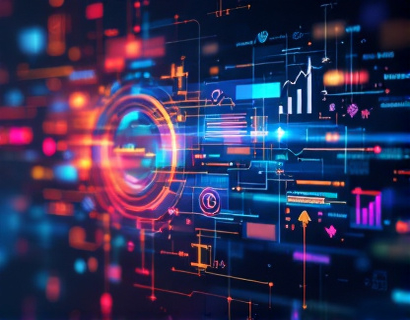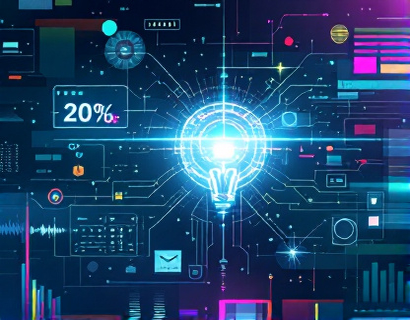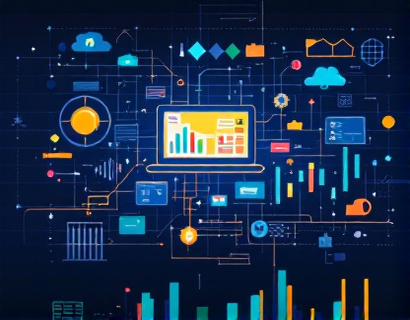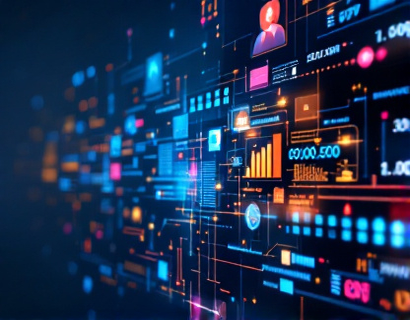Revolutionizing Productivity: The Synergy of AI and Cryptocurrency in Digital Transformation
The integration of artificial intelligence (AI) and cryptocurrency is ushering in a new era of productivity and efficiency in the digital landscape. This synergy is not just a technological curiosity but a transformative force that is redefining how we approach work, manage tasks, and interact with digital tools. For tech-savvy professionals and early adopters, understanding the potential of AI and cryptocurrency can unlock advanced solutions that streamline workflows and enhance daily tasks. This article delves into the ways these cutting-edge technologies are converging to create a smarter, more efficient digital future.
The foundation of this revolution lies in the unique properties of cryptocurrency, which offer decentralized, secure, and transparent transactions. Unlike traditional financial systems, cryptocurrencies eliminate the need for intermediaries, reducing costs and increasing transaction speeds. When combined with AI, which excels in pattern recognition, predictive analytics, and automation, the potential for innovation becomes immense. Together, these technologies can optimize processes, enhance security, and provide personalized experiences that were previously unimaginable.
Enhancing Workflow with AI-Powered Tools
AI-driven tools are already transforming various aspects of professional work. For instance, AI-powered project management software can predict project timelines, allocate resources more efficiently, and identify potential bottlenecks before they become issues. These tools use machine learning algorithms to analyze historical data and current trends, providing insights that human planners might miss. This not only saves time but also improves the accuracy of project planning and execution.
Another area where AI shines is in automating repetitive tasks. Bots and virtual assistants can handle routine activities such as data entry, scheduling appointments, and sending reminders. This automation frees up valuable time for professionals to focus on higher-value tasks that require human creativity and critical thinking. The result is a more productive and fulfilling work environment where employees can leverage their skills more effectively.
Cryptocurrency and Decentralized Applications
Cryptocurrency plays a crucial role in this transformation by providing a new paradigm for digital transactions and asset management. Decentralized applications (dApps) built on blockchain technology offer a level of security and transparency that traditional applications cannot match. For example, dApps can facilitate secure and transparent voting systems, supply chain management, and financial services. These applications are not only more secure but also more resilient to fraud and manipulation.
One of the key benefits of using cryptocurrency in dApps is the elimination of middlemen. Transactions are peer-to-peer, reducing transaction fees and increasing speed. This is particularly beneficial for global businesses that deal with cross-border transactions, where traditional banking systems can be slow and costly. AI can further enhance these processes by analyzing transaction patterns and optimizing routes for maximum efficiency and minimal cost.
Smart Contracts and Automated Agreements
Smart contracts, self-executing contracts with the terms directly written into code, are another powerful application of blockchain technology. When combined with AI, smart contracts can become even more intelligent and adaptive. For instance, AI can analyze real-time data to trigger contract actions based on specific conditions. This automation reduces the need for manual intervention and ensures that agreements are executed precisely as intended.
In the context of business operations, smart contracts can streamline processes such as invoicing, payment processing, and compliance checks. AI can predict potential issues and suggest optimal solutions, further enhancing the efficiency of these automated agreements. This synergy not only saves time but also reduces the risk of errors and disputes.
Personalized Productivity Solutions
The convergence of AI and cryptocurrency also opens up new possibilities for personalized productivity tools. AI can analyze individual work patterns and preferences to recommend customized workflows and tools. For example, an AI-driven platform can suggest the most efficient order for task completion based on a user's historical performance data. This level of personalization ensures that each user has a tailored experience that maximizes their productivity.
Cryptocurrency can enhance this personalization by providing a secure and private way to store and manage user data. Blockchain-based identity verification ensures that personal information is protected while still allowing for seamless integration across different platforms and services. This not only enhances user trust but also ensures compliance with data protection regulations.
Security and Trust in Digital Transactions
Security is a paramount concern in the digital age, and the combination of AI and cryptocurrency addresses this need effectively. Blockchain's inherent security features, such as cryptographic hashing and decentralized consensus, make it extremely difficult for malicious actors to alter or tamper with data. AI can further bolster security by detecting and mitigating threats in real-time. Machine learning algorithms can identify unusual patterns and anomalies, triggering alerts and automated responses to potential security breaches.
Trust is another critical aspect, especially in business transactions. Blockchain provides an immutable and transparent ledger of transactions, which can be audited at any time. AI can enhance this transparency by providing real-time insights and analytics, helping stakeholders make informed decisions. This level of trust and transparency is essential for fostering collaboration and innovation in a digital environment.
Challenges and Considerations
While the potential of AI and cryptocurrency is vast, there are challenges that need to be addressed. One of the primary concerns is the regulatory landscape. As these technologies evolve, governments and regulatory bodies are still grappling with how to govern them effectively. Businesses and individuals must stay informed about regulatory changes and ensure compliance to avoid legal issues.
Another challenge is the technical complexity involved in integrating AI and cryptocurrency solutions. Not all organizations have the expertise or resources to implement these technologies seamlessly. However, as the ecosystem matures, more user-friendly tools and services will become available, making it easier for a broader range of users to benefit from these innovations.
Future Outlook
The future of AI and cryptocurrency in digital transformation is bright. As these technologies continue to advance, we can expect even more sophisticated and integrated solutions. The convergence of AI, blockchain, and other emerging technologies like the Internet of Things (IoT) will create a highly interconnected and intelligent digital ecosystem. This ecosystem will not only enhance productivity but also drive innovation across various industries.
For tech-savvy professionals and early adopters, embracing AI and cryptocurrency offers a competitive edge. By leveraging these technologies, they can streamline their workflows, secure their data, and provide exceptional user experiences. The journey into this new digital frontier is just beginning, and those who lead the way will shape the future of productivity and innovation.











































